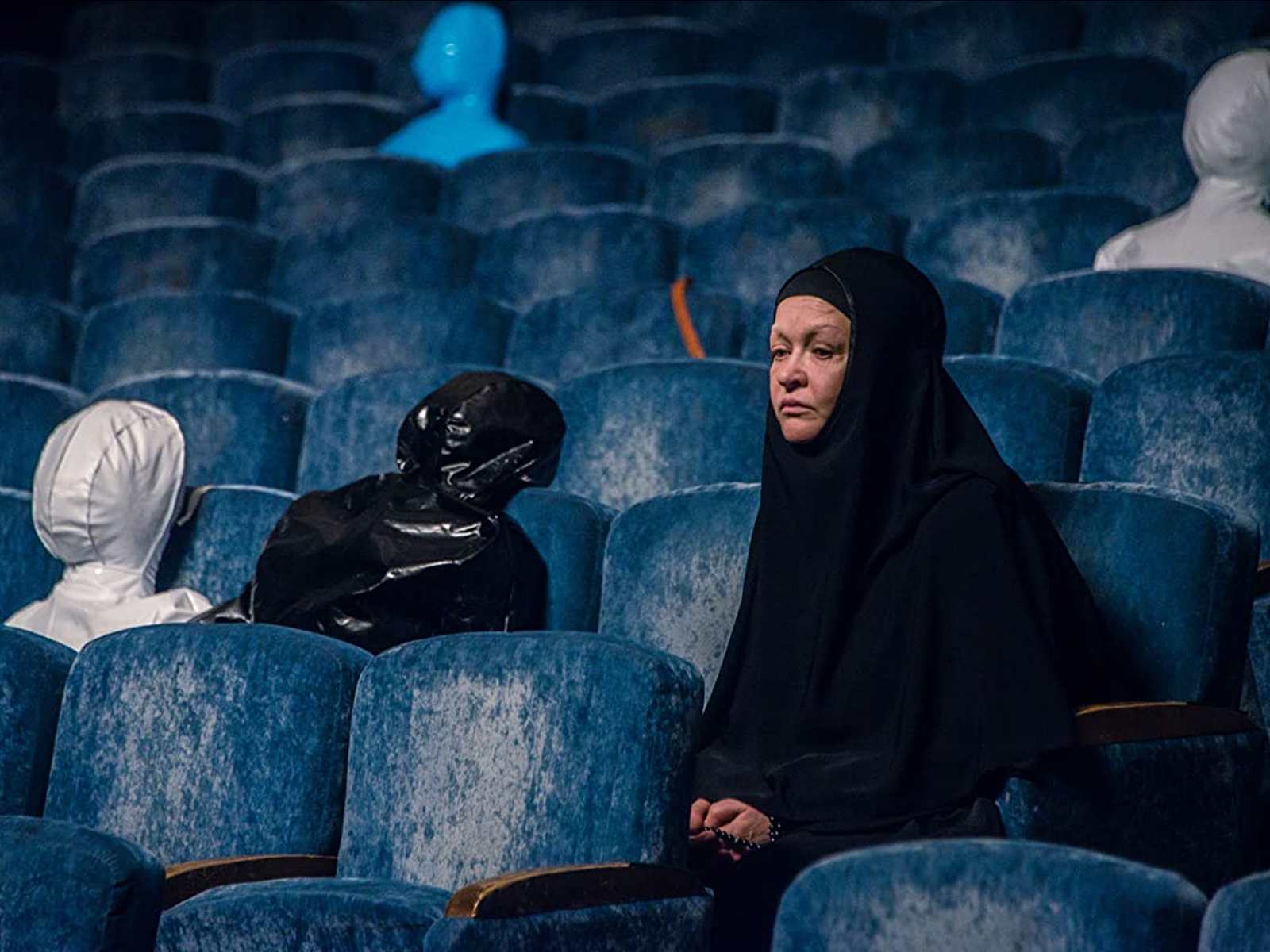
- Golden Globe Awards
Conference (Russia/Estonia/United Kingdom/Italy)
Natasha (Natalya Paylenko) travels to Moscow on the 17th anniversary of the terrorist attack in the Dubrovka Theatre, in which more than 170 hostages and a number of Chechen terrorists were killed. She wants to organize a memorial evening, but not before reuniting with her daughter Galya (Kseniya Zueva). Galya is so angry at her mother that she refuses to let her see her husband, Galya’s father, who is paralyzed.
She shares that anger with many of the survivors and family members of the deceased, and we only find out later what the reasons are, as we uncover Natasha’s own involvement and personal story regarding the attack. She is also not allowed to call the memorial what it is – or even “an evening of mourning” as she proposes. The authorities force her to call it a conference when she registers the event.
The actual night at the theater takes up two thirds of the film. Natasha puts puppets in the seats that the victims occupied and, in a different color, where the terrorists stood. The theater is not crowded, as she leads the ones that came through a re-telling of their loved ones’ stories and their own, which, in a sense, makes them hostages again as they are forced to revisit their pain. The audience learns of Natasha’s backstory, the reasons for her disappearance and escape into religion, her deep, dark secrets.
Director Ivan I. Tverdovskiy is known for his complex and intense films, such as Corrections Class, Zoology and Jumpman, but Conference is considered his most controversial one, precisely because he leaves out all controversy surrounding the actual attack, which still plays out in the media: that the military intelligence agency GRU and the federal security services in Russia had a hand in it. Instead, he focuses on his tortured anti-hero and her motives.
Conference premiered in the Giornate degli Autori section of the Venice Film Festival.